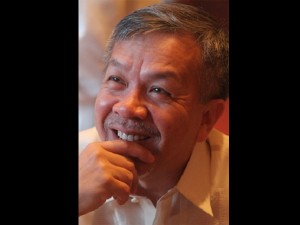MANILA, Philippines—The Philippines has joined 158 other nations in what is being hailed as the first global trade agreement in over two decades.
Trade Secretary Gregory L. Domingo said the country stands to benefit from the “Bali Package,” or the draft commercial agreements adopted by the World Trade Organization (WTO) at the recently concluded 9th Ministerial Conference in Bali, Indonesia. It calls for cutting red tape in customs and port procedures while granting less developed countries temporary dispensation from subsidy limits and some preferential trade concessions.
“Overall, the Philippines will benefit from the Bali package. Under the agriculture agreement, developing countries like the Philippines will be able to maintain and expand its public stockholding for food security free from WTO dispute,” Domingo said in a text message.
Broader agreement
The Bali deal keeps alive the possibility that a broader agreement to create a level playing field for rich and poor countries could be reached in the future, analysts said.
It is the first global agreement struck since the WTO was founded in 1995.
WTO Director General Roberto Azevedo, a Brazilian, shed tears during the summit’s closing ceremony Saturday as he thanked host nation Indonesia and his wife.
“For the first time in history, the WTO has finally delivered” on large scale negotiations, he said.
Protectionist disputes among the WTO members had foiled agreements in various WTO rounds of talks and led to fears that regional trade groupings may sideline the WTO.
Trade ministers had come to the four-day WTO meeting on the resort island of Bali with little hope that an agreement would be reached.
India had posed some obstacles because of its vociferous objections to provisions that might endanger grain subsidies aimed at ensuring that its poor would get enough to eat. The United States also implements large farm supports of its own.
To set the matter aside, WTO members gave developing nations a temporary dispensation from subsidy limits, shelving the issue for negotiations at a later time.
They also wanted assurances that stockpiles would not endanger markets, skewing world prices.
The centerpiece of the agreement reached in Bali were the measures to ease barriers to trade by simplifying customs procedures and making them more transparent.
The deal could boost global trade by $1 trillion over time and also keep alive the WTO’s broader Doha Round of trade negotiations, sometimes known as the development round because of sweeping changes in regulations, taxes and subsidies that would benefit low income countries.
The idea behind the WTO is that if all countries play by the same trade rules, then all countries, rich or poor, will benefit.
Job losses
But some critics say WTO rules may hinder countries from setting their own priorities in environmental protection, worker rights, food security and other areas. And they say that sudden reductions in import tariffs can wipe out industries, causing job losses in rich and poor countries.
The Bali package comes under three headings, namely, trade facilitation, agriculture and development.
Trade facilitation refers to issues on cutting red tape and streamlining customs and port procedures.
Agriculture, meanwhile, refers to four specific issues concerning general services that will be added to the so-called “Green Box”—the category of domestic support that is considered not to distort trade (or to distort minimally) and therefore allowed without any limits; developing countries’ public stockholding of food for food security; tariff quota administration; and export competition, the WTO said.
Under the development heading, the draft decisions concerned duty-free, quota-free access for least developed countries to export to richer countries’ markets; simplified preferential rules of origin for least developed countries, making it easier for these countries to identify products as their own products and qualify for preferential treatment in importing countries; a “services waiver,” allowing least developed countries preferential access to richer countries’ services markets; and a “monitoring mechanism,” consisting of meetings and other methods for monitoring special treatment given to developing countries, the WTO said.
The WTO was formed in January 1995 after the Uruguay Round trade negotiations spanning 1986-1994 were completed. Apart from being a forum for world trade talks, the organization arbitrates trade disputes between member countries. Amy Remo, AFP, AP
RELATED STORIES:
WTO’s global role hangs in the balance at Bali summit
Deal to boost global trade reached at WTO summit
